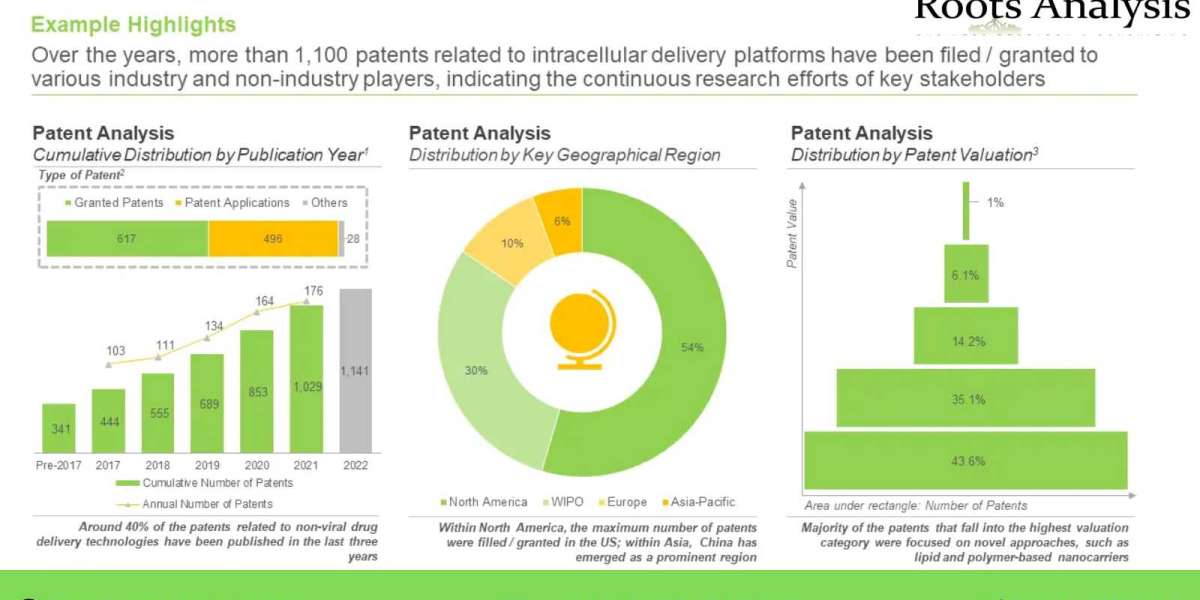One of such disease which has squabbled the entire humanity and accounts for the highest number of death rates globally is cancer. It’s a disease wherein the body’s abnormal cells grow uncontrollably and spread to other parts of the body destroying all the tissues. The interesting and scary fact about cancer is it can start almost anywhere in the body without even imparting any symptoms at the very initial stage. Hence, a precision therapy or we can say a target therapy (involving intracellular drug delivery) is much needed to all the patients suffering from cancer. A target therapy simply allows the drugs to capture the exact site where the diseased cells are present, thereby blocking their activity or killing the undesired cells causing harm to the human body.
Intracellular drug delivery is designed in such a way that drug delivery technology doesn’t let the barriers in the cell destroy the prime compound embedded inside which has the capability to cure the diseased site. One such recently approved drug by the USFDA is Onpattro (patisiran) for the treatment of peripheral nerve disease (polyneuropathy). It is believed to be the first USFDA approval of a new class of drugs called small interfering ribonucleic acid (siRNA) treatment. Other such drug for the treatment of cancer approved by FDA were VYXEOS, and NBTXR3/Hensify.
The question arises here is, does the intracellular drug delivery only applicable for cancer or any other diseases as well?
The answer is yes. It can be used to treat a variety of disorders including cardiovascular disorders, hepatic disorders, genetic disorders and many more. One such recently approved drug marketed by Intra-Cellular Therapies was Caplyta (lumateperone) for the treatment of bipolar depression in adults. According to World Health Organization (WHO), cardiovascular diseases (CVDs) are the leading cause of death globally, taking an estimated 17.9 million lives each year. There is also research being conducted on intracellular drug delivery molecules to treat CVDs. According to a review published by Frontiers, one such molecule is PLGA. It is a copolymer of PLA and PGA and is currently being tested for drug delivery systems for intractable disease including cardiovascular diseases.
The growing rate of approval of drugs is a clear indication that the players in this domain are actively engaged in partnership, research and collaboration activity to discover and develop new intracellular drugs delivery systems. Hence, it can be anticipated that the domain would be growing at a rate of ~18% CAGR in the fore coming future. However, certain challenges and limitation still needs to be addressed in order to reduce the effect of biological barriers for smooth delivery of drugs into the cell membrane, enhanced and longer expressions and stability issues.
Market Share for Non-Viral Drug Delivery Systems
According to a report by Roots Analysis, the non-viral drug delivery market is expected to reach a whopping USD 37.9 billion!
But that’s not all. The report also predicts that technologies that use nanoparticles as intracellular delivery vehicles are believed to capture an impressive 56% of the current market for this type of technology. Furthermore, the overall market in Asia for non-viral drug delivery systems is estimated to grow at a staggering CAGR of 16%.
The Non-Viral Drug Delivery Systems – Focus on Intracellular Technologies and Intracellular Biologics Market 2022-2035 from Roots Analysis features every little details on intracellular drug delivery companies, technologies, partnership and collaboration and future prediction of market.
For additional details, please visit
https://www.rootsanalysis.com/blog/intracellular-non-viral-drug-delivery-systems/ or email [email protected]
You may also be interested in the following titles:
- Smart Labels Market: Industry Trends and Global Forecasts, 2022-2035
- AI-based Digital Pathology / AI Pathology Market: Industry Trends and Global Forecasts, 2022-2035
About Roots Analysis
Roots Analysis is a global leader in the pharma / biotech market research. Having worked with over 750 clients worldwide, including Fortune 500 companies, start-ups, academia, venture capitalists and strategic investors for more than a decade, we offer a highly analytical / data-driven perspective to a network of over 450,000 senior industry stakeholders looking for credible market insights.
Contact:
Ben Johnson
+1 (415) 800 3415
[email protected]








